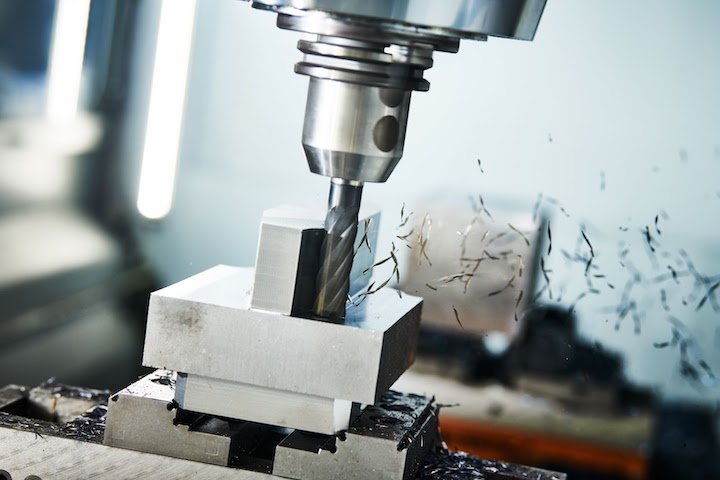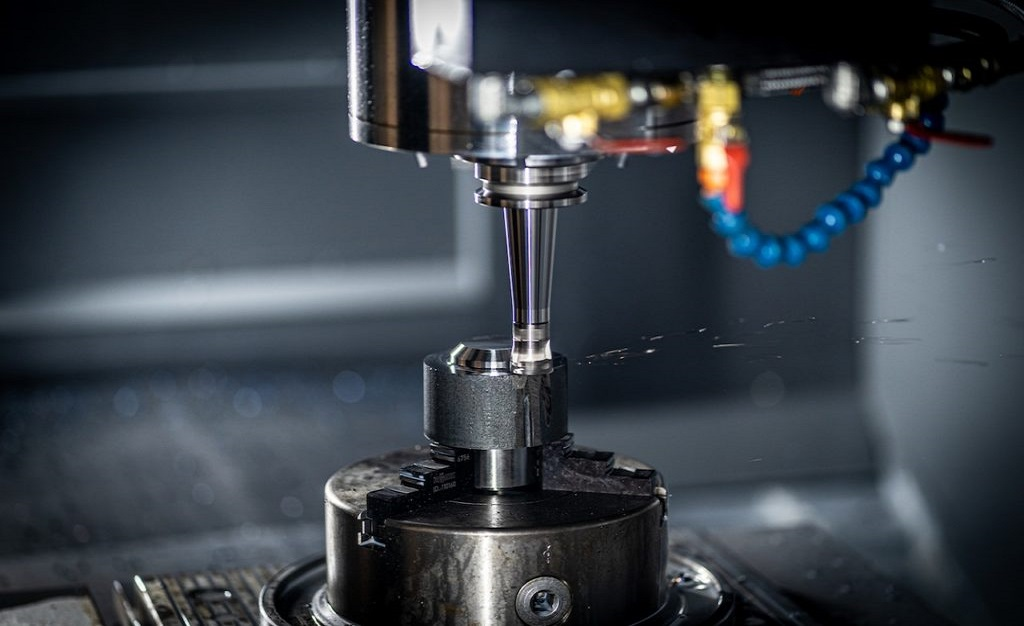CNC milling services have revolutionized the manufacturing landscape, providing businesses with the tools and capabilities to produce high-quality components with precision and efficiency. This article explores how CNC milling services can enhance your manufacturing process, detailing the benefits, applications, and technological advancements that make CNC milling an essential part of modern manufacturing.
Understanding CNC Milling
What is CNC Milling?
CNC milling, or Computer Numerical Control milling, is a subtractive manufacturing process that uses computer-controlled machines to remove material from a workpiece. This process allows for the creation of complex shapes and designs with high accuracy. CNC milling machines can operate on various materials, including metals, plastics, and composites, making them versatile tools in manufacturing. The ability to program intricate designs into the machine's software means that manufacturers can produce parts that would be impossible to create using traditional machining methods. This capability not only enhances creativity in design but also allows for rapid prototyping, enabling businesses to bring their products to market faster.
The CNC Milling Process
The CNC milling process involves several key steps:
Design Creation: The process begins with a digital design created using CAD (Computer-Aided Design) software. This design is then converted into a format that the CNC machine can understand. The use of CAD software allows for detailed modeling and simulation, which can help identify potential issues before the actual machining begins.
Machine Setup: The CNC machine is set up with the appropriate tools, and the workpiece is secured in place. This setup phase is critical, as it ensures that the machine operates correctly and that the workpiece is held securely to prevent any movement during machining.
Machining: The CNC machine follows the programmed instructions to cut, shape, and finish the workpiece. This can involve various operations, such as drilling, boring, and contouring. The precision of CNC milling means that even the most intricate designs can be executed with minimal human intervention, reducing the risk of errors.
Quality Control: After machining, the finished product undergoes quality checks to ensure it meets the required specifications. Advanced CNC machines often include built-in inspection systems that can monitor the machining process in real-time, allowing for immediate adjustments if necessary.
Benefits of CNC Milling Services
Precision and Accuracy
One of the most significant advantages of CNC milling services is the precision they offer. CNC machines can produce parts with tolerances as tight as a few microns. This level of accuracy is crucial in industries such as aerospace, automotive, and medical, where even the slightest deviation can lead to significant issues. The ability to maintain such high precision not only enhances product quality but also reduces the need for extensive rework, saving time and resources.
Increased Efficiency
CNC milling services enhance manufacturing efficiency by automating the machining process. This automation reduces the time required to produce parts, allowing manufacturers to increase their output without compromising quality. Additionally, CNC machines can operate continuously, further boosting productivity. The ability to run multiple jobs in succession without the need for manual setup between each job means that manufacturers can maximize their machine utilization, leading to higher overall efficiency.
Flexibility in Design
CNC milling allows for a high degree of flexibility in design. Manufacturers can easily modify designs and produce custom parts without the need for extensive retooling. This adaptability is particularly beneficial for businesses that require small production runs or custom components. The rapid turnaround time for design changes means that companies can respond quickly to market demands or customer requests, giving them a competitive edge.
Cost-Effectiveness
While the initial investment in CNC milling technology can be significant, the long-term cost savings are substantial. CNC milling reduces material waste through precise cutting and minimizes labor costs by automating processes. Over time, these savings can offset the initial costs, making CNC milling a cost-effective solution for many manufacturers. Furthermore, the ability to produce high-quality parts consistently reduces the likelihood of costly recalls or customer dissatisfaction, further enhancing the financial benefits of CNC milling.
Enhanced Quality Control
CNC milling services incorporate advanced quality control measures throughout the manufacturing process. Automated systems can monitor the machining process in real-time, ensuring that any deviations from the desired specifications are immediately addressed. This level of oversight leads to higher quality products and reduces the likelihood of defects. Additionally, the data collected during the machining process can be analyzed to identify trends and areas for improvement, allowing manufacturers to continuously enhance their processes.

Applications of CNC Milling Services
Aerospace Industry
In the aerospace industry, precision is paramount. CNC milling services are used to manufacture critical components such as engine parts, brackets, and housings. The ability to produce lightweight yet strong components is essential for improving fuel efficiency and performance. Moreover, the stringent safety regulations in the aerospace sector necessitate the highest levels of quality and reliability, which CNC milling can consistently deliver.
Automotive Industry
The automotive industry relies heavily on CNC milling for producing parts such as engine blocks, transmission housings, and custom components. The speed and accuracy of CNC milling allow manufacturers to meet the high demands of the automotive market while maintaining quality. As the industry shifts towards electric vehicles and more complex designs, CNC milling services will play a crucial role in adapting to these changes and producing innovative components.
Medical Devices
CNC milling services play a crucial role in the production of medical devices and equipment. The ability to create complex geometries and maintain strict tolerances is vital for ensuring the safety and effectiveness of medical products. From surgical instruments to implantable devices, the precision offered by CNC milling is essential for meeting the rigorous standards set by regulatory bodies in the healthcare sector.
Electronics
In the electronics sector, CNC milling is used to create enclosures, circuit boards, and other components. The precision of CNC milling ensures that electronic devices function correctly and meet industry standards. As technology advances and devices become smaller and more complex, the demand for precise and reliable manufacturing processes will continue to grow, making CNC milling an indispensable tool in the electronics industry.
Technological Advancements in CNC Milling
5-Axis Machining
One of the most significant advancements in CNC milling technology is the development of 5-axis machining. This technology allows the machine to move the workpiece along five different axes, enabling the production of complex shapes that would be difficult or impossible to achieve with traditional 3-axis machines. 5-axis machining enhances efficiency and reduces the need for multiple setups, saving time and improving accuracy. This capability is particularly beneficial for industries that require intricate designs, such as aerospace and medical device manufacturing.
Automation and Robotics
The integration of automation and robotics into CNC milling processes has further enhanced efficiency. Automated systems can handle material loading and unloading, tool changes, and even quality inspections. This level of automation reduces the need for manual labor and allows for continuous production, maximizing output. As robotics technology continues to advance, the potential for fully automated CNC milling systems will increase, further transforming the manufacturing landscape.
Advanced Materials
CNC milling services are now capable of working with advanced materials, including composites and high-strength alloys. These materials are increasingly used in industries such as aerospace and automotive, where performance and weight savings are critical. CNC milling technology continues to evolve to accommodate these materials, ensuring that manufacturers can meet the demands of modern applications. The ability to work with a wider range of materials also opens up new possibilities for product design and innovation.
Conclusion
CNC milling services have become an integral part of the manufacturing process, offering numerous benefits that enhance efficiency, precision, and flexibility. As technology continues to advance, the capabilities of CNC milling will only improve, allowing manufacturers to produce high-quality components that meet the ever-increasing demands of various industries. By integrating CNC milling into their operations, businesses can optimize their manufacturing processes and stay competitive in a rapidly evolving market.
In summary, CNC milling services not only streamline production but also provide the quality and precision necessary for modern manufacturing. As industries continue to evolve, embracing CNC milling technology will be essential for businesses looking to thrive in the competitive landscape. The future of manufacturing is undoubtedly intertwined with the advancements in CNC milling, making it a critical area for investment and development.

Frequently Asked Questions regarding CNC Milling service
1. What materials can be used in CNC milling?
CNC milling can work with a wide range of materials, including metals (such as aluminum, steel, and titanium), plastics (like ABS and polycarbonate), and composites (such as carbon fiber and fiberglass). The choice of material often depends on the specific application and desired properties of the final product.
2. How does CNC milling differ from traditional milling?
CNC milling differs from traditional milling primarily in its automation and precision. While traditional milling relies on manual operation and adjustments, CNC milling uses computer programming to control the machine, allowing for higher accuracy, repeatability, and the ability to produce complex shapes without manual intervention.
3. What industries benefit the most from CNC milling services?
Several industries benefit significantly from CNC milling services, including aerospace, automotive, medical devices, electronics, and consumer goods. Each of these sectors requires high precision and quality, which CNC milling can consistently deliver.
4. How does CNC milling improve production efficiency?
CNC milling improves production efficiency by automating the machining process, which reduces the time needed to produce parts. CNC machines can operate continuously, handle multiple jobs in succession, and require minimal manual setup, all of which contribute to increased output and reduced lead times.
5. What are the advantages of using 5-axis CNC milling?
5-axis CNC milling offers several advantages, including the ability to create complex geometries that are difficult to achieve with 3-axis machines. It reduces the need for multiple setups, which saves time and improves accuracy. Additionally, 5-axis machining allows for better tool access and can produce higher-quality finishes on intricate parts.






